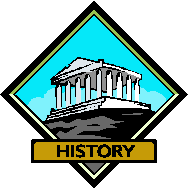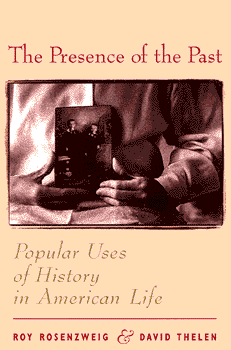 We will begin our work together by considering our texts and how most of us experience
history.
We will begin our work together by considering our texts and how most of us experience
history.History 2710 MacKay
Unit One Introductions
 We will begin our work together by considering our texts and how most of us experience
history.
We will begin our work together by considering our texts and how most of us experience
history.
A. The texts.
B. Our Experiences with History
The American historian Herbert Guttman described 'historical consciousness' as the process by which certain events and their stories do or don't enter into the collective memory as public history and family stories. Historical consciousness, or this collective memory, is inextricably linked with political and social action in any society. Many students develop a sense of the past in a personal, informal, unstructured and constructivist fashion, as well as in the formalized setting of a school. Students frequently encounter the past outside school - in the family, in the community and in various cultural interactions, such as film, media and visits to museums. Students enter a class with a "private universe" in their heads -- and often that "universe" gets in the way of learning.
 Historians Roy Rosenzweig and David Thelen found that Americans forge links
with the past in a myriad of ways. Some people make photo albums, collect
antiques, or visit historic battlefields. Others keep diaries, plan annual
family gatherings, and spend time researching the family tree. Some even write
letters to deceased loved ones. These links to the past help many people to
grapple with the profound question of how to live. One black man from Memphis,
who had taken his children to visit a civil rights organization started by his
grandfather, tells of the way the civil rights movement taught him a basic moral
lesson in racial equality. And a young woman from Ohio speaks of how the birth
of her first child caused her to reflect on the ways that her parents' example
would help her become a good mother.
Historians Roy Rosenzweig and David Thelen found that Americans forge links
with the past in a myriad of ways. Some people make photo albums, collect
antiques, or visit historic battlefields. Others keep diaries, plan annual
family gatherings, and spend time researching the family tree. Some even write
letters to deceased loved ones. These links to the past help many people to
grapple with the profound question of how to live. One black man from Memphis,
who had taken his children to visit a civil rights organization started by his
grandfather, tells of the way the civil rights movement taught him a basic moral
lesson in racial equality. And a young woman from Ohio speaks of how the birth
of her first child caused her to reflect on the ways that her parents' example
would help her become a good mother.
Reading:
Discussion Topics:
Complete the survey based on their work.
Analysis #1: Consider getting started on finding a scholarly article on a topic in American history 1877-1967. Use The History Cooperative. The first analysis paper is due at 6th week.